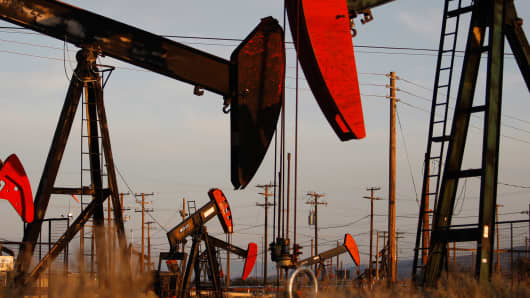 |
| David McNew | Getty Images |
For obvious reasons, fracking companies were upset, and a lawsuit was filed almost immediately afterwards. Just today, U.S. District Judge Scott Skavdahl barred the implementation of the rules, ruling that the Inner Department's Bureau of Land Management (BLM) did not have the power to create these regulations. As Skavdahl explained, "Congress has not authorized or delegated to the BLM authority to regulate hydraulic fracturing and, under our constitutional structure, it is only through congressional action that the BLM can acquire this authority." Furthermore, Skavdahl also notes that the rules are an unnecessary overlapping of each state's individual regulations on fracking. Although the Interior Department will get the chance to appeal the ruling, for now the BLM has agreed to operate as it had before the rules were put in place.
On the other hand, this is a serious blow to environmentalists, who had thought that these regulations still gave too many concessions to the companies. Furthermore, the plan had only applied to federal and Indian territories - which account for about 10% of total fracking within the United States. The rejection of these regulations, being the first major federal regulations on fracking, raises concern for whether or not the federal government can even stop regulate the fracking before the pollution becomes too severe or we run out of oil.
First of all, what do you think about the rule that the list of chemicals need to be released 30 days after being used? I personally think it's a ridiculous and ineffective rule, but I guess rules are better than no rules. But are they? Are rules really better than no rules?
Do you think fracking is a problem? On one hand, it does pose a threat to our ecosystems and water supply as chemicals are being released into groundwater systems. Furthermore, it increases our dependence on fossil fuels, which are already running out on the planet as well as causing serious global warming (if you believe in global warming, that is). However, it also allows us to drill for more oil, and promises to lead the U.S. out of dependence on other countries, specifically within the Middle East, for energy.
Finally, what do you think of the ruling? Should the BLM be granted power over this? Should the congress be granted power over this? Should this even be a Federal power?
New York Times - Ruling
New York Times - Original Proposal
Wall Street Journal
CNBC
1 comment:
This is definitely a federalism issue, and I think that the solution relies on a model similar to the national minimum wage. Congress, or the federal government, should have the authority to set a national average standard for fracking, while the states should be able to set their own standards that either meet or go beyond the national standards. I think this fixes up the solution nicely, especially preventing further contamination of groundwater, which can mess up an entire ecosystem or urban area. So yes, fracking is a problem, just like any other unregulated way for big companies to profit at the expense of the environment.
About the 30 day rule: who does this benefit besides the fracking companies? It practically says that if they contaminated the groundwater in your area you only have the right to know after 30 days. The chemicals should be confirmed by the local or state government before they are every sprayed anywhere to ensure public health and safety.
We do need more oil, or fossil fuels. But why aren't we looking for a replacement? We know that the supply on earth is running out, unless you count the millions of gallons under the ocean that we'd have to destroy ecosystems to reach. What about wind and solar power? We should be modeling our replacement system off of countries like Germany, Italy, and yes China, who uses more solar energy then we do every year.
Post a Comment